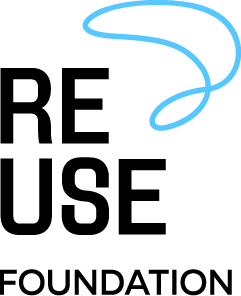Featured
THE FAILURE OF PLASTIC RECYCLING VERSUS THE PROMISE OF REUSE |
|

|
Plastic recycling has long been promoted as a cornerstone of waste management, but evidence shows it is largely ineffective as a solution to the plastics crisis. Globally, about 9% of all plastic is recycled, with the rest going to landfill, the environment or burnt. OECD says by 2060 only 17% of plastic will be recycled. Even the portion that’s recycled degrades and gets contaminated meaning its usually downcycled and ultimately ends up as waste.
Approaching 50% of all plastic is for packaging, almost all single use. Shifting to reuse would prevent this waste as well as reduce demand for virgin plastic production and associated oil extraction and emissions (99% of plastic comes from oil). Research suggests reusable packaging systems can cut CO2 emissions by 60% compared to single-use packaging and World Economic Forum estimate reusing 10% of plastic products can prevent the equivalent of half of annual plastic ocean waste. Plastic recycling is used to justify disposability, but it’s failing. To make a difference we need to shift from ‘use-once and dispose’ behaviours. Join us as we make the transition to reuse.[Image Credit: © Sylwia Bartyzel ] |
Highlights
Unilever And AEPW Join Forces To Combat Plastic Waste |
|
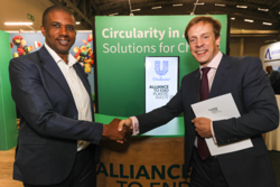
|
Unilever and Alliance to End Plastic Waste, an NGO funded and founded by industry, signed a Memorandum of Understanding in Cape Town, South Africa, to enhance plastic waste management and recycling in the region. Every year, around 3.67 million tonnes of waste in the country is not collected, leading to significant environmental issues. The partnership will explore innovative solutions for plastic waste management, seeking funding opportunities to foster a circular economy. By collaborating with various stakeholders, including Producer Responsibility Organisations and financial institutions, the initiative aims to drive systemic change in addressing plastic waste challenges in South Africa and Sub-Saharan Africa.[Image Credit: © Alliance to End Plastic Waste]
|
Ireland’s DRS Hits 500 Million Container Milestone |
|

|
Ireland's Deposit Return Scheme, launched in February 2024, recovered over 500 million plastic bottles and cans to date. Operated by Re-turn, the scheme encourages consumers to return containers at over 2,500 Reverse Vending Machines and 350 manual return points nationwide. Month-on-month, the scheme has seen continuous growth, supporting EU recycling targets and reducing landfill and litter. [Image Credit: © Re-turn]
|
Bold Action Needed For Reuse Systems In Europe |
|
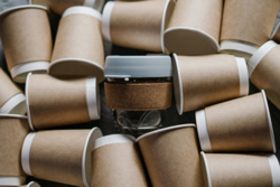
|
Zero Waste Europe calls for stronger policies to boost reuse systems for takeaway packaging, highlighting both environmental and economic benefits. Its recent report suggests switching to reusable packaging could significantly reduce greenhouse gas emissions, but reuse systems are neglected because hidden cost of single-use options, such as litter cleanup and environmental damage, are ignored. The report says taxes should level the playing field and suggests stronger regulatory actions, including setting reuse targets or banning single-use packaging.[Image Credit: © cottonbro studio from Pexels]
|
Aluminum Bottles Replace Plastics At Chicago Events |
|
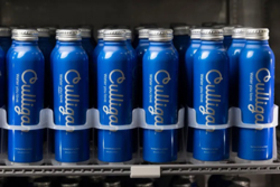
|
Culligan International, in partnership with the United Center, Chicago Bulls and Blackhawks, is helping to reduce plastic waste by introducing aluminum water bottles at the Chicago Marathon and sports events. These BPA-free bottles will replace single-use plastic bottles at concession stands, and Culligan will install new refilling stations and recycling bins at the venue.[Image Credit: © Culligan] |
Consumer Demand Fuels Shift Toward Sustainability Initiatives |
|
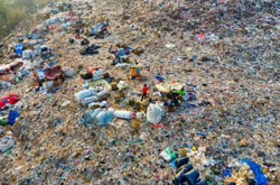
|
Initiatives like Plastic Bank’s programs allow businesses to integrate recycled plastics into their supply chains, helping to reduce plastic waste while supporting ethical collection systems in coastal communities. Consumers are now more inclined to support brands that align with their values of reducing plastic pollution, pushing companies to innovate and adopt more sustainable practices. This consumer-driven momentum is helping advance the circular economy and reduce plastic waste globally.[Image Credit: © Tom Fisk from Pexels]
|
EPR Laws Demand Clearer Consumer Recycling Education |
|
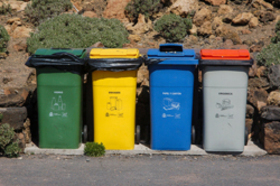
|
Minnesota's new Extended Producer Responsibility law, enacted in May 2024, holds brands accountable for the disposal of their product packaging, requiring them to invest in consumer education to improve recycling. Despite rising eco-consciousness, a recent study by Package InSight showed that only half of sustainably minded consumers check packaging for recycling instructions, relying instead on intuition, which often leads to incorrect disposal choices. Misleading use of the “chasing arrows” recycling symbols, for example, results in plastics sent to recycling facilities unable to recycle them. [Image Credit: © Jan van der Wolf from Pexels]
|
ESG Award Recognizes Liverpool FC Sustainability Efforts |
|
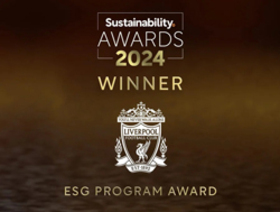
|
Liverpool FC won an ESG Award at the Global Sustainability Awards. Its initiatives include reducing plastic waste, improving energy efficiency and promoting sustainable practices and includes a partnership with SC Johnson that led to a circular recycling process, transforming plastic bottles from Anfield into new products. This initiative has contributed to a 30 percent reduction in overall waste since 2019.[Image Credit: © BizClik Media Limited] |
Scaling Reuse Systems For A Circular Economy |
|
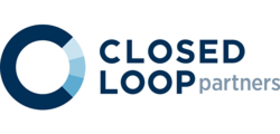
|
Closed Loop Partners emphasizes the critical need to scale reusable systems as part of the transition to a circular economy. Its investments focus on advancing reuse to combat plastic waste. Aerflo, one of its investment beneficiaries, is developing software and infrastructure solutions to make reuse systems more efficient. Key challenges include building localized infrastructure, such as collection and cleaning facilities, and shifting consumer behavior. [Image Credit: © Closed Loop Partners]
|
Greenpeace Releases Spoof Dove Ad, Attacking Dove’s Sustainability Credentials |
|
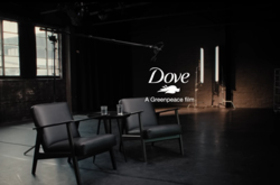
|
Greenpeace UK created a spoof ad to mark the 20th anniversary of Dove’s “Real Beauty” campaign, exposing the plastic waste record of the brand and its parent, Unilever. “Toxic Influence: The Dark Side of Dove” mimics Dove’s 2022 ad but highlights the environmental impact of the brand’s plastic waste. Greenpeace claims that Dove alone used 6.4 billion plastic sachets in 2022, and Unilever uses 1,700 per second globally. Starkly contrasting with Dove’s positive marketing, the ad urges Unilever to phase out single-use plastics and adopt reusable materials. It follows Greenpeace’s recent protest at Unilever’s headquarters.[Image Credit: © Greenpeace UK]
|
UK Retailers Struggle To Scale Refill Initiatives |
|
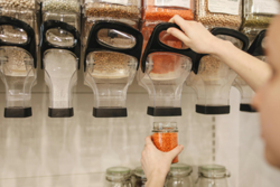
|
Supermarkets in the UK face challenges in scaling refillable concepts, with trials from major retailers like Lidl, Asda M&S and Tesco failing to gain momentum due to operational issues and lack of infrastructure. Despite consumer interest in reducing plastic waste, logistical barriers and economic challenges limit success. No one country has solved the problem, but some are trying harder. France, Chile and Austria have adopted more ambitious regulations that promote refill systems, spurring innovation and consumer adoption. France mandates that large supermarkets dedicate 20 percent of floor space to refill stations by 2030. Some countries, like the Philippines, have more embedded reuse and refill traditions, such as the Tingi culture of buying and selling exact amounts in sari-sari stores using reusable containers. [Image Credit: © Polina Tankilevitch from Pexels]
|
SEC Charges Keurig Dr Pepper Over K-Cup Recyclability |
|
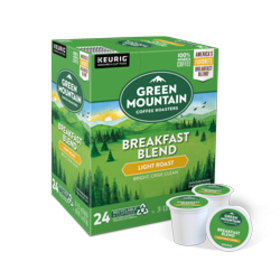
|
In the US, the Securities and Exchange Commission charged Keurig Dr Pepper for allegedly misleading investors about the recyclability of its K-Cup coffee pods. KDP stands accused of falsely promoting its pods as recyclable, knowing that most will end up in landfills. SEC’s charge highlights growing concerns about corporate responsibility and environmental impact, and the increased scrutiny companies will face in providing accurate information about their environmental practices and product sustainability. [Image Credit: © Keurig Green Mountain, Inc.] |
Capri Sun Urges Plastic Straw Reintroduction |
|

|
Capri Sun has requested the European Commission reconsiders its plastic straw ban, arguing that paper straws are not functional or practical. Despite improvements to paper straws, the company argues they complicate the recycling of its juice pouches, and consumers don’t like them. Critics in turn point out that plastic straws contribute to pollution and question their recyclability. [Image Credit: © Capri-Sun]
|
Consumer Brands Push To Broaden Plastic Recycling Definition |
|
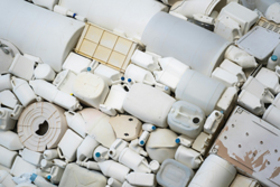
|
As the Federal Trades Commission reviews its Green Guides, guidance for brands and government agencies on the definition of terms like “recyclable”, the Consumer Brands Association is urging US regulators to relax the definition of "recyclable" plastics. They want packaging materials like plastic shopping bags and toothpaste tubes to carry recyclable labels, despite limited recycling infrastructure, on the basis they are technically recyclable even if their likely destination is landfill. Critics argue this could lead to more "wishcycling," where consumers mistakenly believe certain items are recycled. [Image Credit: © Mike van Schoonderwalt from Pexels]
|
Kiehl’s Launches Refill Campaign To Cut Plastic Waste |
|

|
L’Oréal beauty brand Kiehl’s introduced its “Don’t Rebuy. Just Refill” campaign to encourage customers to reduce single-use plastic by opting for refillable product formats. This initiative is part of Kiehl's broader sustainability goals, including reducing plastic waste and promoting a circular economy. The campaign features refill pouches, which save up to 80 percent plastic compared to standard packaging. Kiehl’s invites consumers to bring in empty containers for discounted refills at in-store stations.[Image Credit: © Kiehl’s Since 1851]
|
Greenpeace Protests Against Dove Brand At Unilever’s London HQ |
|

|
Greenpeace UK activists blocked Unilever’s London headquarters with oversized Dove products and a modified ‘Dead Dove’ logo to protest the company’s inadequate response to plastic pollution and recent rollback of sustainability goals. The demonstrators barricaded the building’s entrances and were joined by climbers displaying a large canvas on the facade. This action is part of Greenpeace’s campaign urging Unilever to eliminate single-use plastics, particularly sachets, and support stricter plastic reduction targets at the upcoming UN Global Plastics Treaty negotiations. [Image Credit: © Unilever]
|
EU Regulation Targets Sustainable Packaging Changes |
|
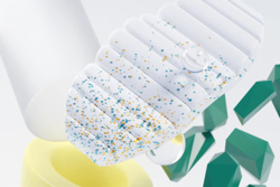
|
In an interview with Carsten Bertram, Head of Packaging Sustainability for Henkel Consumer Brands, Bertram highlights the EU's new Packaging and Packaging Waste Regulation aimed at enhancing sustainability in packaging. The regulation, effective from January 2025, focuses on reducing single-use plastics, increasing recycling rates and promoting reusable packaging solutions. It introduces stricter requirements for packaging design to facilitate recycling and mandates improved environmental labeling. Henkel supports these measures, viewing them as a critical step toward a more sustainable packaging industry.[Image Credit: © Henkel AG & Co. KGaA]
|
Knorr Adopts Recyclable Paper For Stock Cubes |
|

|
Unilever’s Knorr brand is replacing its multi-layer aluminium wrapper to recyclable paper in the UK. Following a successful pilot in Tesco, it will be rolled out across all retailers and the core stock cube during this month. [Image Credit: © Unilever] |
Coca-Cola Fails to Increase Reusable Packaging Goals |
|
.jpg?width=280)
|
A report from Oceana highlights Coca-Cola’s lack of significant progress toward its reusable packaging commitments, potentially contributing to millions of plastic bottles entering oceans annually. Despite pledges to increase reusable bottles to 25 percent by 2030, the share in 2023 was 14 percent, unchanged from the previous year. Oceana argues that this failure exacerbates the global plastic waste crisis and that achieving the 25 percent target would avoid over 100 billion Coca-Cola plastic bottles annually. [Image Credit: © Oceana, Inc.]
|
Unilever Joins Circle Alliance For Packaging Circularity |
|
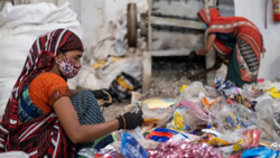
|
Unilever has joined USAID and EY in forming the Circle Alliance, a $21 million public–private initiative to scale solutions focused on reducing plastic use and tackling plastic waste. It aims to support entrepreneurs and small businesses along the plastics value chain, support women’s economic empowerment and improve livelihoods and protect the environment by accelerating circular economies. CIRCLE’s initial focus is India, Indonesia, Vietnam and the Philippines, with expansion expected to other markets through new partnerships and funding, and it builds on the TRANSFORM accelerator scheme, led by Unilever, EY and the UK’s Foreign, Commonwealth & Development Office.[Image Credit: © Unilever]
|
Microplastics Found Accumulating In Human Brains And Organs |
|

|
Recent research highlights the growing accumulation of microplastics in critical human organs, including the brain, and scientists are calling for global action on plastic pollution. Studies have detected microplastics in various human tissues, such as lungs, reproductive organs, and bone marrow. A pre-print paper of a recent study found brain samples contained 10-20 times the level of microplastics found in other organs. The impact of microplastics on human health is still unclear but may increase the risk of oxidative stress, cardiovascular disease and other health conditions. The rising concentration of plastic in human bodies mirrors growing environmental pollution levels.[Image Credit: © Rahul Pandit from Pexels]
|
New Biodegradable Material Targets Microplastics in Cosmetics |
|

|
Teysha Technologies in the UK has developed a biodegradable material called AggiePol that could eliminate 8,700 tonnes of microplastics used in cosmetics annually across Europe. Made from natural feedstocks like starch, it can reportedly replace microplastics in products such as shampoos and foundations. The material is designed to integrate seamlessly into existing cosmetics production processes.[Image Credit: © TEYSHA TECHNOLOGIES LIMITED]
|
Companies Continue To See Lightweighting As A Key Weapon Against Plastic Waste |
|
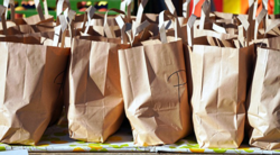
|
Reducing the weight of packaging - lightweighting - can be an effective way to loweritsenvironmental impact. In addition to reducing plastic use, companies can lowercarbon emissions associated with transportation and raw material production. Henkel, for instance, reduced the thickness of its Taft hairspray cans, saving over 15 percent in materials and water used during production,preventing about 3,500 metric tonnesof CO2 and 900,000 cubic meters of water annually.
Lightweighting offers significant benefits but brings challenges too. Switching from glass or aluminum to PET may lower carbon footprint but makes the material less likely to be recycled. And reducing the mass of plastic used in packaging can make it less economically attractive to recycle too, meaning some lightweighted packaging is more likely to end in landfill. [Image Credit: © Matthias Böckel from Pixabay] |
Coca-Cola Tests 'Closed Loop' Recycling at Paris Olympics |
|
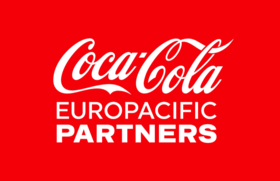
|
Coca-Cola successfully trialed a "closed loop" recycling system at the Paris Olympics, recycling bottles used during the Games for reuse in the Paralympics. This initiative aligns with Coca-Cola's "World Without Waste" goal to collect and recycle a bottle or can for every one it sells by 2030. The trial, which reduced the usual recycling cycle from four months to under four weeks, included 700 drink fountains offering refillable options and beverages in returnable or recycled packaging. The company is evaluating lessons from Paris for future recycling schemes, including the UK's Deposit Return Scheme currently set to launch in 2027. The new Labour government has said it aims to launch the DRS before October 2027. Coca-Cola says it supports DRS to enhance recycling rates and reduce plastic waste.[Image Credit: © Coca-Cola Europacific Partners]
|
